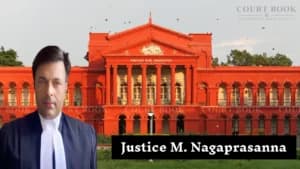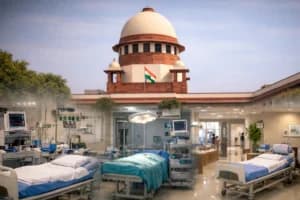The Madras High Court has held that a person who voluntarily solemnizes marriage under the Indian Christian Marriage Act, 1872, will be deemed a Christian and, consequently, is considered to have renounced their original religion. As such, the person becomes ineligible to claim Scheduled Caste (SC) status or related reservations.
Justice L. Victoria Gowri delivered this ruling in the case of V. Iyyappan v. The District Collector and Others [W.P.(MD) No. 17632 of 2023], declaring the Chairman of Theroor Town Panchayat, Mrs. V. Amudharani, disqualified from the post reserved for the SC category. The judge noted that the respondent, born a Hindu Pallan (a recognized SC community), had married under Christian rites in 2005 at St. Antony's Church, Kulasekaramputhoor, thus relinquishing her Scheduled Caste identity by law.
"Once a person submits voluntarily for the conduct of one's marriage under the Indian Christian Marriage Act, 1872, the said person could be considered a Christian thereafter and renunciation of their native religion is automatic," the Court held.
The petitioner, V. Iyyappan, argued that the Chairman was ineligible to hold the position reserved for SC candidates as she had converted to Christianity. He also highlighted that a written objection was submitted during the election, but the returning officer dismissed it arbitrarily. The respondent, on the other hand, denied converting, claiming that although her marriage followed Christian customs, she remained a practicing Hindu and had not undergone baptism.
The Court, however, examined church records, including the marriage register and baptism records of the respondent’s children. It noted that the Christian practice of publishing "banns"—done only for baptized Christians—was followed during the marriage. This substantiated the claim that she was baptized and accepted into the Christian faith.
Read Also:-Madras High Court Imposes Interim Stay on NEET UG 2025 Results Over Re-Examination Plea
Even if the petitioner was never baptized, she could be considered only as a Christian, the Court remarked, stating that conducting marriage under Christian law without civil solemnization under the Special Marriage Act amounts to relinquishing Hindu faith.
Justice Gowri further criticized the election authorities, observing that "the present case is a shameful field reality of the manner in which the election officers were reduced to sheer pawns by the ruling party during local body elections, reducing the vision of the noble Panchayat Raj to a mockery."
The Court noted that the Constitution (Scheduled Castes) Order, 1950 clearly disqualifies individuals who do not profess Hinduism, Sikhism, or Buddhism from claiming Scheduled Caste status. Since the respondent embraced Christianity, she could not claim SC benefits under law, irrespective of her original caste.
While the respondent produced community certificates and evidence of temple worship, the Court rejected them as insufficient. It also discredited a letter submitted by her in support, which claimed she was a temple member, after another letter from the temple committee refuted her claims, calling the certificate fake.
Emphasizing the legal difference between inter-religious civil marriages and religious conversions, the Court said that only a marriage under the Special Marriage Act would have allowed the respondent to retain her Hindu SC identity.
Counsel for Petitioner: Mr. B. Saravanan, Senior Counsel For M/s. Spicy Law Firm
Counsel for Respondents: Mr. P. Veera Kathiravan Additional Advocate General Assisted by, Mr. D. S. Neduncheliyan Government Advocate, Mr. Aaiyam K. Selvakumar, Mr. Anto Prince, Mr. K. Gnanasekaran, Government Advocate (Crl. Side)
Case Title: V Iyyappan v. The District Collector and Others
Case NO: W.P.(MD)No.17632 of 2023















